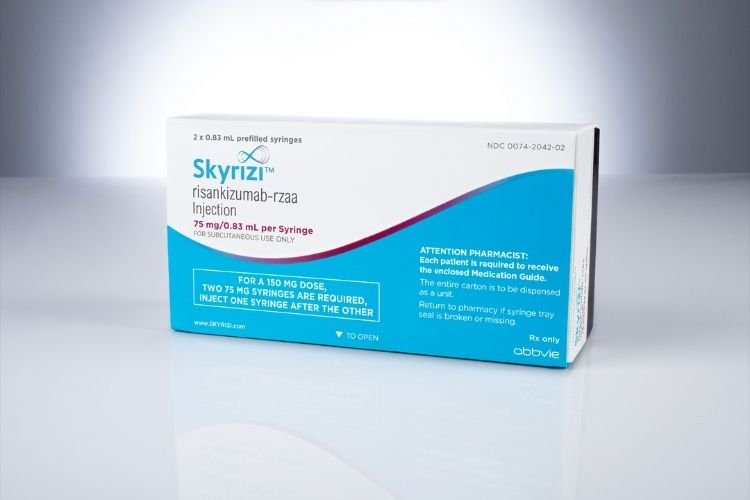AbbVie’s Skyrizi has notched a resounding victory over Johnson & Johnson’s biologic drug Stelara in treating Crohn’s disease, as revealed by detailed trial results from the phase 3 SEQUENCE trial. Skyrizi demonstrated its superiority by helping a significantly higher proportion of patients with moderate to severe Crohn’s disease achieve clinical remission compared to Stelara. The Crohn’s Disease Activity Index measured remission rates of 61% for Skyrizi and 41% for Stelara at Week 48. This substantial difference mirrored the findings at Week 24, where Skyrizi outperformed Stelara with remission rates of 59% and 40%, respectively.
Importantly, the SEQUENCE trial, one of its primary endpoints, was initially designed for Skyrizi to demonstrate noninferiority to Stelara at Week 24. The data were unveiled at the United European Gastroenterology Week 2023.
Also Read: AbbVie’s Skyrizi Beats J&J’s Stelara In Crohn’s Disease Showdown
Skyrizi’s advantage extends to various aspects. In comparison to Stelara, Skyrizi doubled the remission rate, observed under an endoscope, to 32% at Week 48. Nearly all patients who achieved either endoscopic or clinical remission while on Skyrizi or Stelara did so without requiring steroids.
Skyrizi also fared better on a less stringent metric called endoscopic response, characterized by a decrease of at least 50% on the Simple Endoscopic Score for Crohn’s Disease. The AbbVie drug achieved a 45% response rate at both Week 24 and Week 48, while Stelara’s rate slightly dropped from 26% at Week 24 to 22% at Week 48.
“The results from the SEQUENCE study provide physicians with important data to help inform therapy options that can help patients reach treatment goals.”
– Laurent Peyrin-Biroulet, M.D., Ph.D., from the University Hospital of Nancy, France
Skyrizi, targeting IL-23 and gaining FDA approval for Crohn’s disease in June 2022, has rapidly captured a quarter of the market share in the United States among new and transitioning patients in the second quarter of this year.
Also Read: How Skyrizi Outspent Other Drugs In A Tough Market
AbbVie has expanded its aspirations for Skyrizi, seeking FDA and European Medicines Agency approvals in August for its use in ulcerative colitis, the other form of inflammatory bowel disease. The drug demonstrated efficacy in two phase 3 trials as an induction and maintenance treatment for patients with moderate to severe active ulcerative colitis.
Skyrizi and Stelara could face competition from Pfizer’s Velsipity, an oral S1P receptor modulator, which recently received FDA approval in ulcerative colitis. Pfizer has argued that Velsipity should be considered a first-line treatment following 5-ASA therapies or steroids, given its remission rate comparable to biologics.
AbbVie positions Skyrizi as a successor to Humira in its inflammatory disease portfolio. The company raised its sales projections for Skyrizi and JAK inhibitor Rinvoq to a combined $17.5 billion in 2025, up from the previous estimate of $15 billion. AbbVie aims to generate over $21 billion in revenue from the two drugs by 2027 in order to compensate for the anticipated decline in Humira’s patent exclusivity. Additionally, AbbVie has invested significantly in the marketing of Skyrizi and Rinvoq, with both experiencing substantial TV drug ad spend over the year.





























